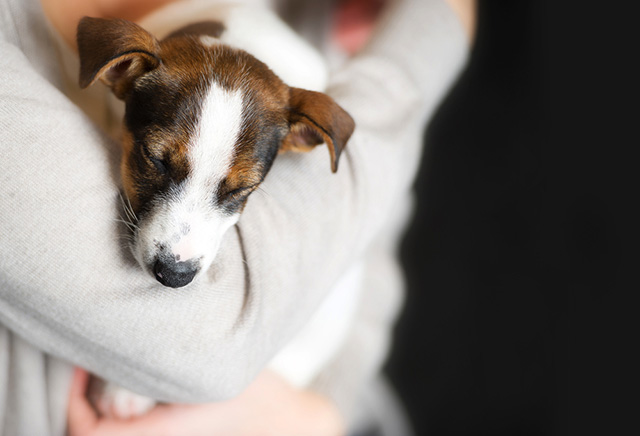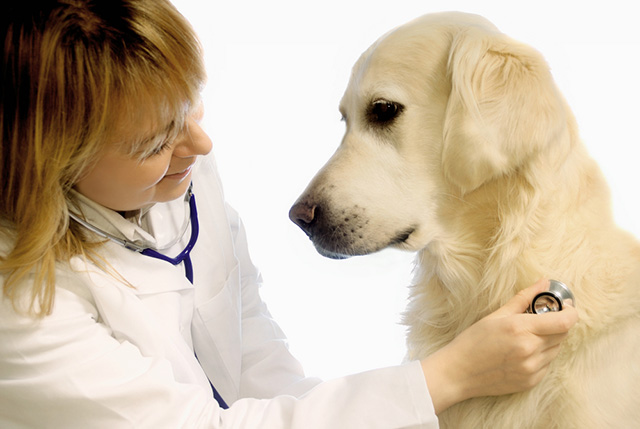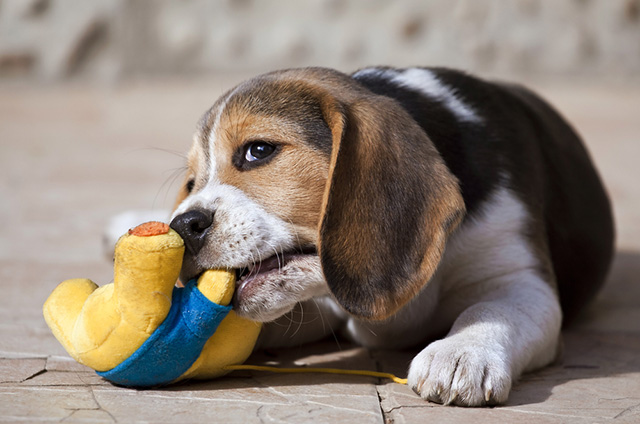Hopefully you’ll have anticipated your new arrival by ‘puppy proofing’ your home, and had lots of fun choosing the bed, blanket, toys and other supplies they will need. This frisky little creature is sure to bring you much joy. In return, you can make a major contribution to your puppy’s longevity, happiness and quality of life by providing him or her with good nutrition, loving attention in a safe, clean environment and regular check-ups at your veterinary practice.

Neutering your puppy
Many veterinary surgeons believe that neutering not only helps solve the serious problem of unwanted dog overpopulation but also makes for friendlier, easier-to-live-with pets. Spayed female dogs are more relaxed, while neutered males are less likely to roam, ‘spray’ or urine-mark their territory, or fight with other males.
Sterilisation also has health benefits – it helps to minimize the risk of cancers of the reproductive organs and the mammary glands in females and reduces the incidence of prostate and testicular cancer problems in males
Spaying removes the uterus and ovaries of a female dog, often around the age of six months. A major surgical procedure, it is performed under general anaesthesia. Complications are rare and recovery normally is complete within two weeks.
Castration, also carried out under general anaesthesia, removes the testicles of a male dog through an incision at the base of the scrotum. Usually performed when the puppy is about six months old, it necessitates only a brief hospital stay. Full recovery takes about seven to ten days.
Your puppy’s basic health check
Your new puppy should visit a veterinary surgeon as soon as possible. The first visit will probably include:
- A thorough physical examination to determine his/her state of health.
- Check for parasites (fleas, ticks, lice, ear mites, worms).
- Initial vaccination and/or a discussion of the types of vaccinations your puppy needs and when they should be scheduled.
- Discussion about whether your puppy should be neutered and when.
This first health check will give your veterinary surgeon the information needed to advise you on your puppy’s immediate diet and care. Plus, it will create a “knowledge base” from which, on subsequent checkups throughout your pup’s life, he/she can better evaluate, monitor and manage your pet’s health.

Make your puppy feel at home
Show your puppy the special places where he/she can eat, sleep and go to the toilet and, since they’re probably quite overwhelmed, give them some quiet time to adjust to the unfamiliar sights and sounds of the new home.
If there are young children in the home, make sure that they are taught that a puppy is not a toy but a living creature who must be treated with gentleness and respect.
As early as 8 weeks old, your puppy is capable of learning specific lessons – so start home training and teaching simple obedience commands the day you bring them home. Your veterinary surgeon can suggest the best training methods and, if you wish, recommend a good obedience school. Your puppy will find learning fun and easy and, with your positive reinforcement, should remember lessons well.

Giving your puppy the best start
When is the best time to start caring for an ageing pet? When he or she is a puppy. Starting off your dog’s life with good nutrition, regular exercise, scheduled veterinary appointments and a happy home life sets the blueprint for a high quality of life in older years. However, as your dog ages, much like humans, changes to the metabolism will occur. Paying attention to your dog’s behaviour will make detecting problems easier.
What you can do at home
- Check your dog’s mouth, eyes and ears regularly. Watch for loose teeth, redness, swelling or discharge.
- Keep your dog’s sleeping area clean and warm.
- Groom your dog often. You’ll detect any unusual sores or lumps and keep his/her coat healthy.
- Make fresh water available at all times.
- Maintain a regime of proper nutrition, exercise and loving attention.

